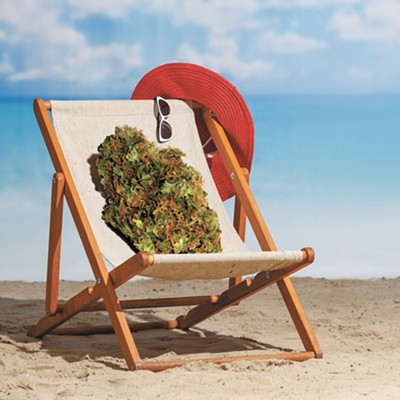When I was looking for housing a year ago, several friends urged me to stay away from Spokane due to rising crime rates, drug busts, gang activity and escalating poverty in the area. I heard about police brutality and Otto Zehm, racial profiling in law enforcement, and a high dropout rate for African American male students.
As a mother of two black sons, I took both the rumors and statistics seriously but ultimately decided that, with all its challenges and issues, living in Spokane would prepare my kids more for the "real world" than North Idaho had. I looked through the problems toward what legislation and activity was in motion to improve the social conditions. Two of the brightest glimmers of hope for me were the approval of marriage equality in the state and the legalization of retail marijuana.
Although I don't personally smoke weed and rarely participate in recreational activities of any kind, I am hopeful that the culmination of this legislation with the opening of marijuana stores this week will lead to fewer petty arrests, more racial equity in law enforcing and an opportunity for economic growth.
With marijuana arrests accounting for over half of all drug arrests in the United States, legalizing the substance seems like a common-sense way to reduce rates of apprehension and hammer a dent in the school-to-prison pipeline. In fact, the legalization of the drug should curb the majority of weed-related arrests, because about 88 percent of the marijuana arrests tend to be just for possession of the substance. But until this week, with retail outlets opening, there was no foolproof way of acquiring the product for non-medical use without crossing legal boundaries. It will undoubtedly take some grace and understanding for those who are not in favor of this calming substance to accept its integration and normalization into Spokane life and culture. For some populations, this may be the tipping point of catching a break and feeling just a little more accepted here.
When it comes to racial bias in law enforcement, marijuana arrests have a bad reputation for stacking the deck with African American apprehensions. And let's remember that usage rates are equal per capita, across the racial spectrum. But in spite of equal consumption rates, blacks are almost 4 percent more likely than whites to be arrested for marijuana possession. In a place like Spokane, where racial polarity is heightened by a supra-dominant white majority population, this seemingly small detail could weigh in significantly as a helpful catalyst toward more equal opportunities and life chances for black youth and families living here.
There is no doubt that Spokane could use more economic stimulation, but what remains to be seen is whether the growers and sellers of retail marijuana will be able to turn a profit. With a triple tax of 25 percent at each juncture for growers, processors and sellers, added to heightened regulations and production time, I wonder if the business of legal sales will really catch like wildfire.
Will the novelty of marijuana stores be enough to offset the high overhead, inflated prices and cash-only policy? We can only hope that indeed the grass will be greener on the other side of integrating legalized retail marijuana into Spokane society. The exciting journey starts this week; may it be a step forward for our community. ♦
Rachel Dolezal, formerly of the Human Rights Education Institute in Coeur d'Alene, is an award-winning artist and activist who teaches courses in art, Africana history and culture at area universities.






















